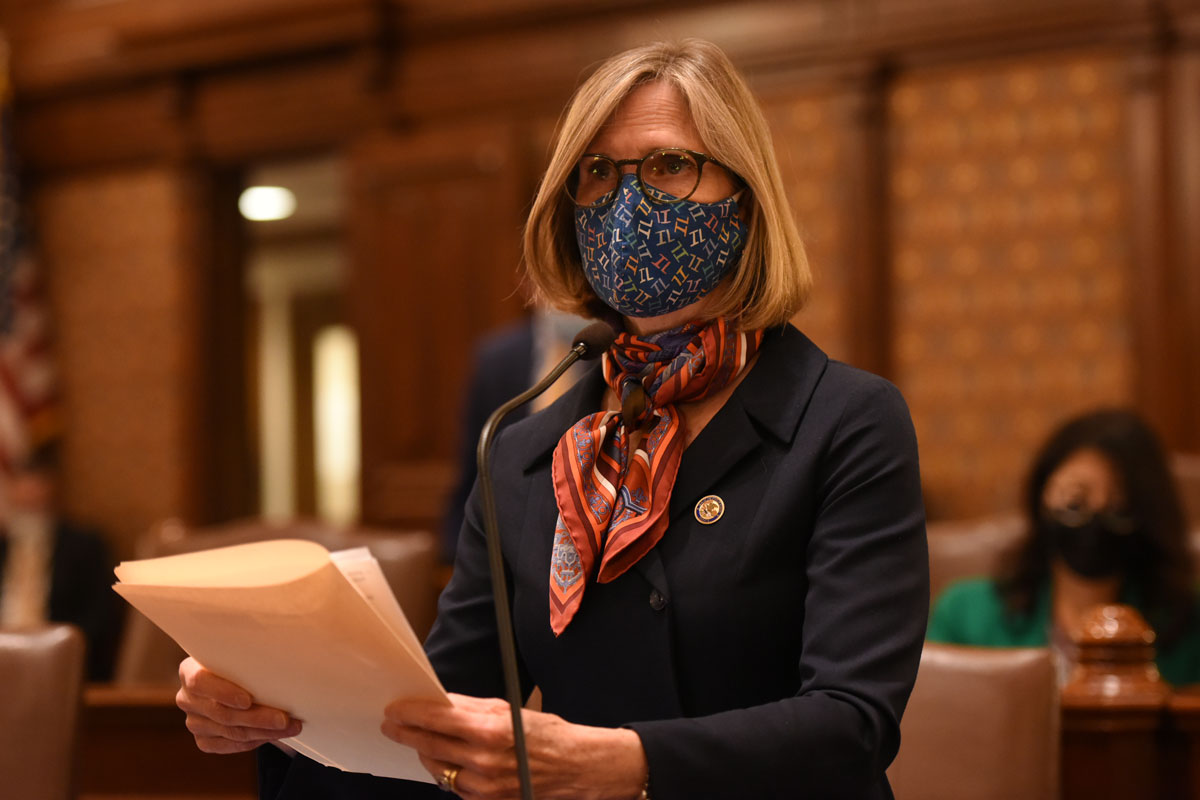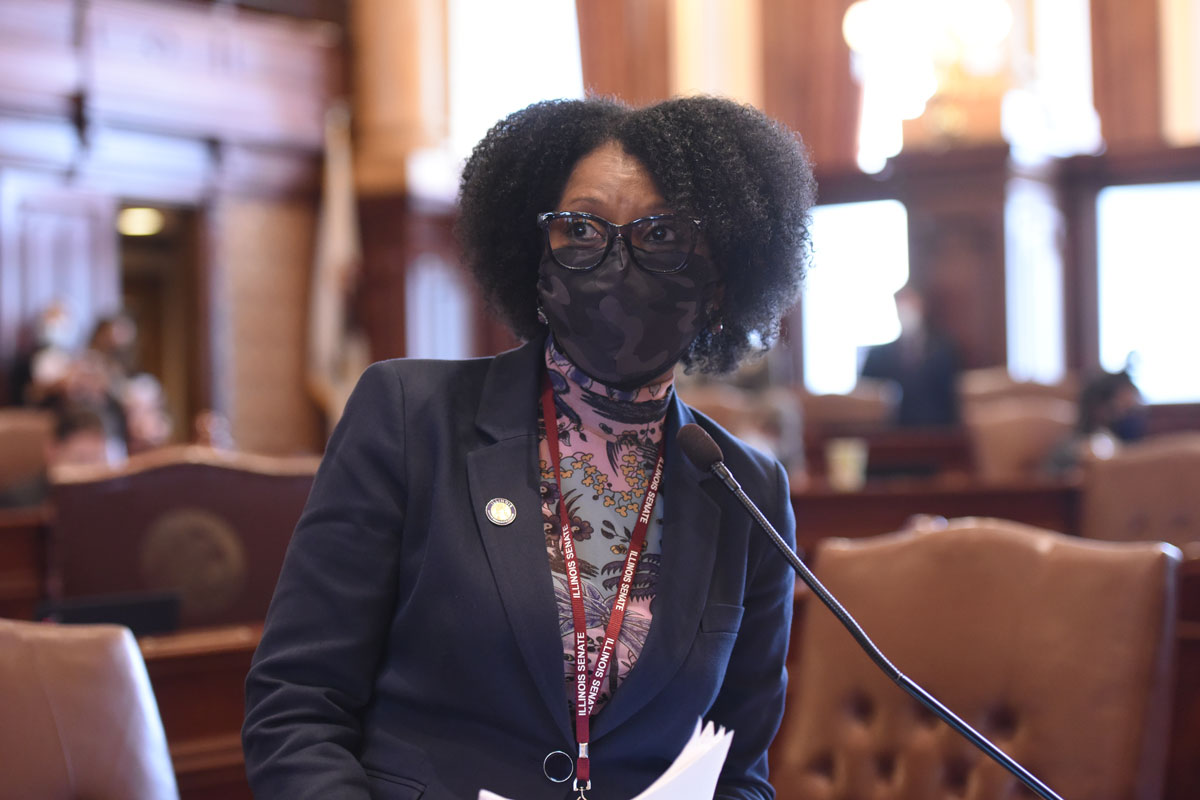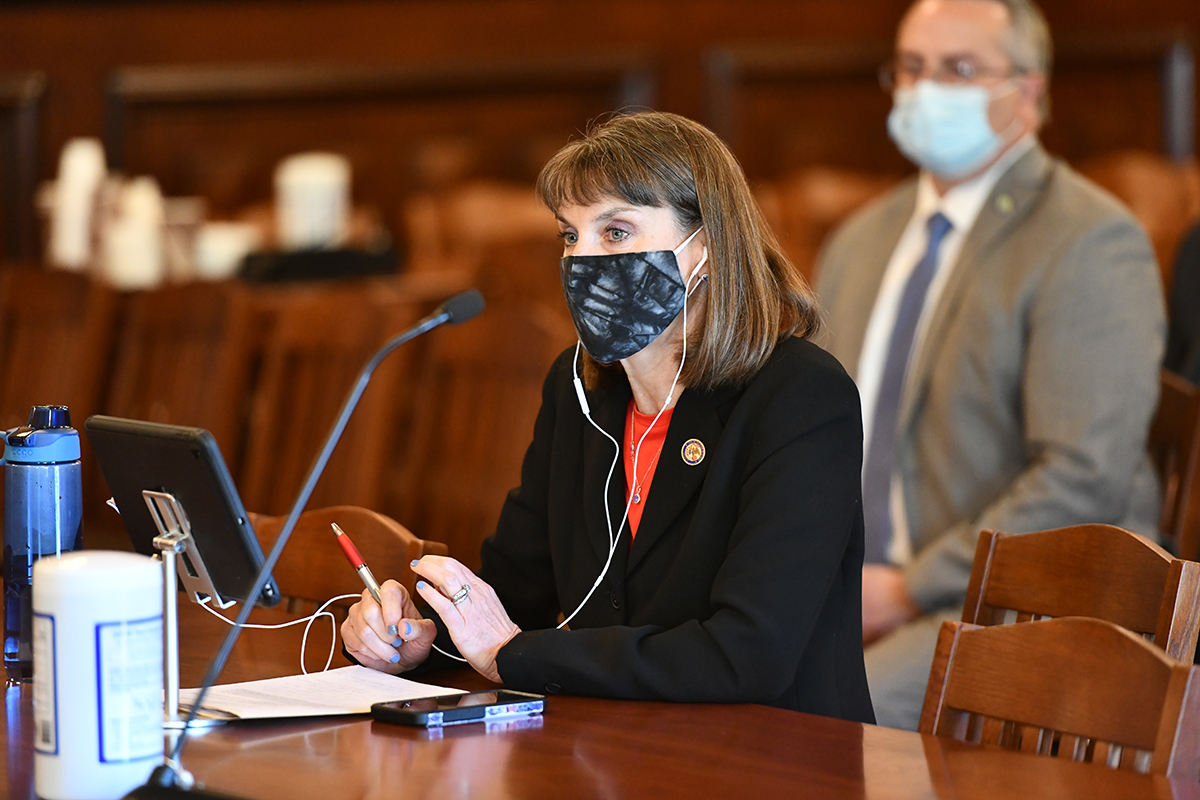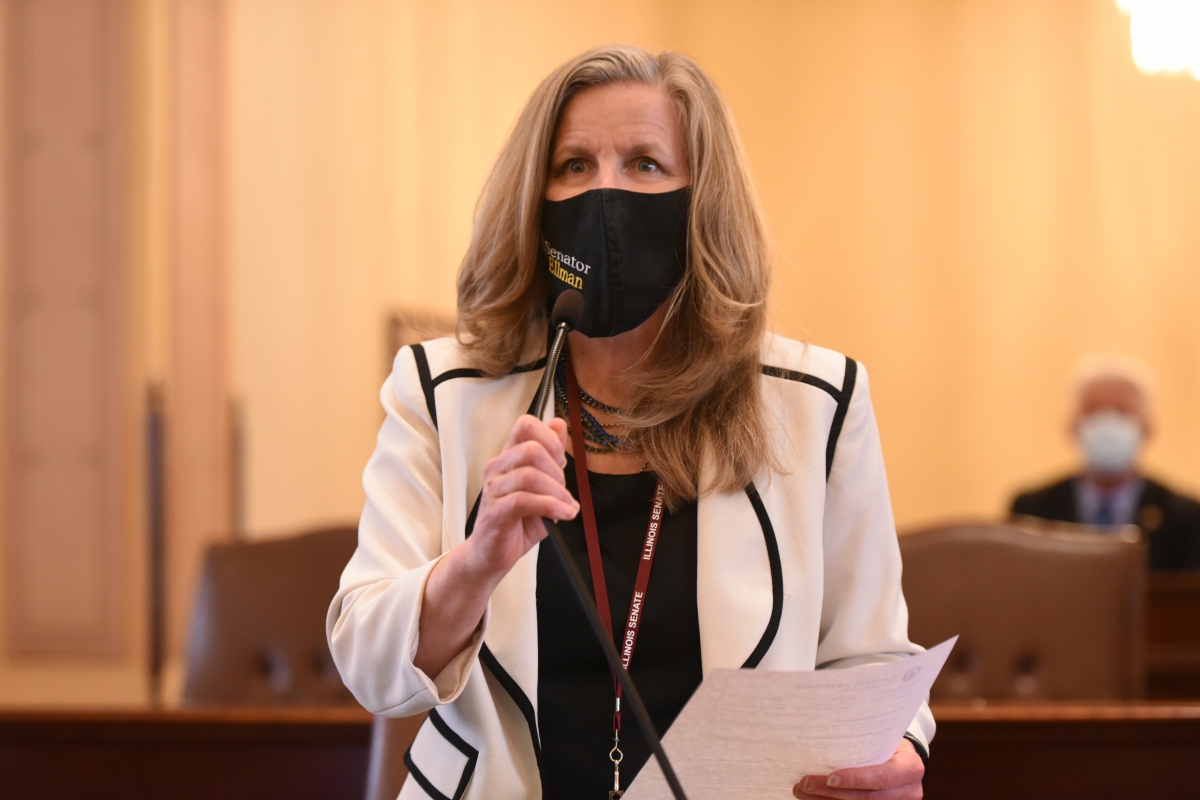- Details
- Category: Senator Robert Peters News

“A mental health crisis is not a crime and should not be treated as such,” Peters said. “Gregory was having a mental health crisis and was suicidal, and the situation was made worse and almost cost him his life. We need to invest in alternative responses so that this never happens again, because our responsibility is to provide treatment, not trauma.”
- Details
- Category: Senator Suzy Glowiak Hilton News
 SPRINGFIELD – To encourage support of affordable housing projects, State Senator Suzy Glowiak Hilton (D-Western Springs) advanced legislation to renew the state’s tax credit program and steadily increase benefits over time.
SPRINGFIELD – To encourage support of affordable housing projects, State Senator Suzy Glowiak Hilton (D-Western Springs) advanced legislation to renew the state’s tax credit program and steadily increase benefits over time.
“The Illinois Affordable Housing Tax Credit has been instrumental in the development and preservation of affordable housing across the state over the last two decades,” Glowiak Hilton. “With its renewal, Illinois stays committed to the public and private partnerships needed to provide ongoing economic activity in communities.”
Read more: Glowiak Hilton moves to renew tax credit for affordable housing donations
- Details
- Category: Senator Christopher Belt News
 SPRINGFIELD – State Senator Christopher Belt (D-Centreville) is highlighting a funding opportunity for area airports for improvement projects through the Rebuild Illinois statewide construction program.
SPRINGFIELD – State Senator Christopher Belt (D-Centreville) is highlighting a funding opportunity for area airports for improvement projects through the Rebuild Illinois statewide construction program.
“I’m glad to see the state making these kinds of investments, and I’m encouraging our local airport to apply,” Belt said. “This funding would help pay for maintenance and repairs that keep passengers safe, while boosting our local economy at the same time.”
The Illinois Department of Transportation announced that the Rebuild Illinois program will provide $94 million in funding to improve public airports throughout the state. Through a competitive grant process, airports may submit project proposals for updates, improvements, and extensions of their facilities.
Airports must be for public use and included in the Illinois Aviation System Plan to be eligible for the funding. Applications are due June 14 to be eligible for grants of up to $25 million.
Local area airports eligible for this funding are MidAmerica St. Louis Airport, located in Belleville and St. Louis Downtown Airport, located in Cahokia Heights.
Application information is available by visiting IDOT’s Airport Improvement Program page. Awards are anticipated to be announced later this year.
- Details
- Category: Senator Adriane Johnson News
 SPRINGFIELD – Insurance companies in Illinois would be required to cover screenings to detect ulcerative colitis, polyps, diverticulosis, Crohn's disease, cancer and other gastrointestinal conditions under legislation from State Senator Adriane Johnson (D-Buffalo Grove).
SPRINGFIELD – Insurance companies in Illinois would be required to cover screenings to detect ulcerative colitis, polyps, diverticulosis, Crohn's disease, cancer and other gastrointestinal conditions under legislation from State Senator Adriane Johnson (D-Buffalo Grove).
“If your doctor recommends a colonoscopy, you should be able to get one, regardless of your income level,” Johnson said. “This simple procedure could detect, or even prevent cancer—it could save your life.”
The legislation would require health insurance companies to cover the cost of a colonoscopy that has been deemed medically necessary after an initial screening. Patients could not be charged a deductible, coinsurance, copayment or other cost-sharing requirement for the procedure.
Colorectal cancer is the third most common cause of cancer-related death for both men and women, according to the American Cancer Society. However, if it is caught early, colorectal cancer has a 90% survival rate.
Not only can a colonoscopy screen for colorectal cancer—it is one of the only screening tests that can actually prevent colon cancer by finding and removing colon polyps before they become cancerous.
“Patients should be able to take control over their health and take advantage of preventive care services like colonoscopies,” Johnson said. “This legislation makes sure that insurance companies cover this life-saving, preventive screening.”
House Bill 2653 passed the Senate Insurance Committee Wednesday and now heads to the full Senate.
- Details
- Category: Senator Laura Fine News

SPRINGFIELD – The Department of Healthcare and Family Services would be required to reimburse epilepsy specialists for providing telehealth treatment services under State Senator Laura Fine’s (D-Glenview) legislation, which passed committee Tuesday.
“Epilepsy affects hundreds of thousands of Illinoisans, and it’s important they have the option to seek treatment from the comfort of their home in the midst of a global pandemic,” Senator Fine said. “Epilepsy specialists need to be reimbursed for providing critical telehealth services to their patients.”
There are more than 65 million people around the world who have epilepsy, according to the Epilepsy Foundation, and many have sought treatment via telehealth during the COVID-19 pandemic. Senator Fine’s legislation would ensure epilepsy specialists in Illinois receive the reimbursement they deserve for providing telehealth treatment to individuals with epilepsy or related disorders.
- Details
- Category: Senator John Connor News
 SPRINGFIELD – Legislation sponsored by State Senator John Connor (D-Lockport) to increase groundwater monitoring in areas near quarry fill sites advanced out of committee on Wednesday afternoon.
SPRINGFIELD – Legislation sponsored by State Senator John Connor (D-Lockport) to increase groundwater monitoring in areas near quarry fill sites advanced out of committee on Wednesday afternoon.
“Water is one of our most precious natural resources,” Connor said. “We have to make protecting it a priority so that our residents have reliable, clean water to drink for generations to come.”
House Bill 653 is an initiative of the Illinois Environmental Council and the Environmental Law and Policy Center that provides funding to hire additional inspectors and carry out increased testing of clean construction and demolition debris facilities. This testing and monitoring will help to ensure that contaminants are kept out of fill sites where clean construction demolition debris is dumped, and in turn kept out of groundwater.
“Investing in our environment is investing in our future,” Connor said.
The legislation remains in the Senate for further discussion.
- Details
- Category: Senator Laura Ellman News
SPRINGFIELD – A measure sponsored by State Senator Laura Ellman (D-Naperville) that would allow the student member of the Illinois Student Assistance Commission to retain their seat until a new member is appointed passed committee on Tuesday.
“This measure would allow ISAC’s student commissioner to retain their seat after their term is over until a new commissioner is appointed,” Ellman said.
ISAC’s mission is to provide Illinois students with information and assistance to help make education beyond high school accessible and affordable.
Read more: Ellman measure would prevent ISAC student commissioner vacancy
- Details
- Category: Senator Karina Villa News

SPRINGFIELD – Illinoisans receiving aid through federal and state food assistance programs could use their benefits to purchase feminine hygiene products under legislation led by State Senator Karina Villa (D-West Chicago), which passed out of committee Tuesday.
“Period poverty is a public health crisis that requires immediate action,” Villa said. “Women of all ages deserve to live their lives to the fullest, but that is often not possible, as the cost of menstrual hygiene products puts them out of reach for many members in our community.”
Villa’s measure would require the Department of Human Services to apply for a waiver from the U.S. Department of Agriculture’s Food and Nutrition Services permitting Supplemental Nutrition Assistance Program (SNAP) and Special Supplemental Nutrition Program for Women, Infants, and Children (WIC) benefit recipients to use their benefits to purchase diapers or menstrual hygiene products.
Read more: SNAP and WIC benefits could be used for feminine hygiene products under Villa measure
More Articles …
Page 494 of 768














 © 2026 Illinois Senate Democratic Caucus
© 2026 Illinois Senate Democratic Caucus